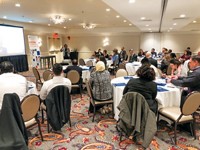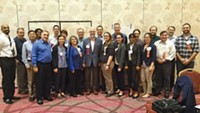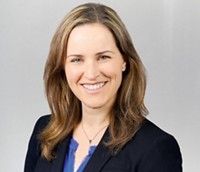Advertisement
Grab your lab coat. Let's get started
Welcome!
Welcome!
Create an account below to get 6 C&EN articles per month, receive newsletters and more - all free.
It seems this is your first time logging in online. Please enter the following information to continue.
As an ACS member you automatically get access to this site. All we need is few more details to create your reading experience.
Not you? Sign in with a different account.
Not you? Sign in with a different account.
ERROR 1
ERROR 1
ERROR 2
ERROR 2
ERROR 2
ERROR 2
ERROR 2
Password and Confirm password must match.
If you have an ACS member number, please enter it here so we can link this account to your membership. (optional)
ERROR 2
ACS values your privacy. By submitting your information, you are gaining access to C&EN and subscribing to our weekly newsletter. We use the information you provide to make your reading experience better, and we will never sell your data to third party members.
Careers
A Hub For Chemists’ Job Resources
Career Navigator unifies ACS’s professional development offerings
by Susan J. Ainsworth
February 23, 2015
| A version of this story appeared in
Volume 93, Issue 8

Do you need to have your résumé reviewed? Are you curious to know if you are being paid as well as your peers? Or do you want to find a course to help you become a better leader or gain exposure to, say, chemical engineering or pharmacokinetics?
The American Chemical Society has resources to help you accomplish any of these goals, and many more. And it wants you to know all about them.
With that aim in mind, the society recently launched ACS Career Navigator, which brings together under one umbrella the society’s offerings in four areas: professional education, leadership development, career services, and market intelligence.
“Previously, ACS career-related resources were organized as separate entities,” says Martha Lester, director of professional advancement at ACS, which publishes C&EN. “By bringing them together under one brand, we are creating a synergistic suite of services and making them more visible to members so that they can fully benefit from them.”
In creating Career Navigator, Lester adds, “we have developed a tool that members can use to help manage their professional development from the time they are students all the way until they retire.”
For instance, ACS’s Professional Education program has created more than 100 technical and managerial courses designed to help chemical scientists and technicians keep current in today’s competitive employment marketplace. The courses are organized around eight clusters: analytical, biological/medicinal, computers/statistics/engineering, general, organic/physical, polymers, professional development, and regulatory/environmental.
Among its offerings are short courses that are presented seminar-style, spanning between four hours and three days, by professionals who are teachers as well as scientists or experts in their fields. “Existing courses are continually evaluated and new courses are constantly being launched, based on the needs of our learners,” says Steven R. Meyers, assistant director of ACS’s Career & Professional Advancement department. Courses will be offered in more locations around the U.S. in 2015 than in 2014, he adds. Courses’ prices vary by length and range from $400 to $2,600; members receive $100 to $200 discounts. Employers often cover the cost of the courses for their employees.
Taking a polymeric coatings course in Dallas last month has been a boon for Jack Dickens, who recently began his first job as a coatings formulator at PPG Industries in Cleveland. The course delivered the “concentrated and comprehensive information” he was seeking, he says. “It provided excellent background for a wide variety of coating chemistries.”
In addition to gaining exposure to the latest technologies, those taking the courses often benefit from networking with other participants, who sometimes share nonproprietary information and technologies from their own firms, notes Marek W. Urban, a materials science and engineering professor at Clemson University, who teaches the polymeric coatings course. “So, through these courses, we are also building long-term relationships and forming a community.”
ACS also offers a few courses that combine classroom lectures with hands-on lab work, Meyers notes. One such course is focused on polymers; another zeroes in on chromatography. These four- to six-day courses cost between $3,200 and $3,800; members receive a $200 discount.
Recognizing that many members do not have the time or budget to travel to short courses, ACS also offers live, instructor-led courses that meet online over a period of weeks, Lester says. The society has compiled a catalog of online short courses, called OnDemand, that are based on recorded modules that learners can view anytime. ACS plans to offer more online and on-demand courses this year, Lester adds. Online courses cost between $800 and $1,200; members receive a $200 discount. OnDemand courses cost $200 per module.
At the same time, ACS is reaching out to proffer its courses to more corporations. Over the past few years, the society has provided workshop-based training to 25 companies, including some in the chemical, pharmaceutical, and oil and gas industries. To better serve their training needs, ACS has also developed a customizable online learning platform called Sci-Mind, Meyers says. It fosters community engagement, knowledge sharing, and real-time problem solving for employees on single campuses or across multiple sites, he adds.
ACS offers a suite of 17 online or face-to-face courses through its Leadership Development System, which falls under the Leadership Development quadrant of Career Navigator. Launched in 2009 to provide training to those serving the society in leadership roles, the system took three years to develop at a substantial cost, Lester says.
“ACS Leadership Development System courses such as ‘Collaborating across Boundaries’ and ‘Leading without Authority’ are taught by a cadre of ACS members,” Lester says. For example, Omar I. Asensio, an ACS member who is a National Science Foundation fellow at the University of California, Los Angeles, facilitates “Fostering Innovation.” The four-hour interactive course “trains engineers and scientists how to tap their own innovation styles, stimulate new thinking, and eliminate individual or organizational barriers to innovation,” he says.
Not surprisingly, the courses have broad appeal that reaches beyond ACS leadership. They are open to all ACS members and employees, as well as nonmembers. Four-hour facilitated leadership courses cost $150 for members and $300 for nonmembers. One-hour online leadership courses cost $25 for members and $50 for nonmembers.
Those who take the Leadership Development System courses build “cutting-edge leadership skills” they can use not just in their ACS roles, but also in their jobs, says Larry Krannich, who cochairs the ACS Leadership Advisory Board. The board oversees the Leadership Development System. “The ability to motivate others, coach and guide colleagues, work on a team, and strategically plan is indispensable to those who want to advance in their career,” he says.
Carol Duane, who also cochairs the Leadership Advisory Board, notes: “By adding these abilities to your technical skills, you can differentiate yourself from other professionals in this challenging job climate.”
In addition, numerous scientific societies are working to partner with ACS to gain access to the Leadership Development System courses. “No comparable system exists in the not-for-profit sector,” Krannich says.
ACS Leadership Development System courses are offered at ACS national, regional, and local section meetings and at the Leadership Institute, an annual invitation-only conference where ACS leaders convene to build skills to enable them to be successful within the society. This year’s institute, which was held in Dallas in January, drew more than 350 student and professional leaders. During the event, attendees celebrated 50 years of leadership development programming within ACS.
Separately, under Career Navigator’s Career Services banner, members benefit from another slate of offerings. Through this program, “ACS provides resources, timely and relevant information, mentoring, and advice to help members meet their individual goals at all stages of their careers,” says Rick Ewing, chair of the ACS Committee on Economic & Professional Affairs, which oversees Career Services.
Through its career fairs, which are held at ACS national meetings and also live online, job seekers can receive advice, attend workshops, submit applications, and schedule interviews with corporate recruiters.
Help For Unemployed Chemists
Many chemists are still struggling to find jobs. To address the urgent needs of its unemployed members, the American Chemical Society offers an extensive suite of career assistance tools and discounts. ACS offers all of its members a number of other free career assistance tools. For links to the career-related benefits and resources for members, visit www.acs.org/unemployed.
Under another Career Services program, ACS members can seek help from one of more than 50 career consultants who have expertise in various areas of the chemical enterprise. As experienced, objective observers, “career consultants provide honest, constructive feedback about your résumé, interview style, and career plans,” says Lisa M. Balbes, who volunteers in the program. Career Services also sponsors job clubs, which meet online and over the phone to encourage job seekers and help them connect with each other as well as ACS staff members, career consultants, and other experts.
Through the Market Intelligence component of Career Navigator, members can delve into ACS’s annual salary and employment reports for chemists and new graduates. They can also access a popular tool: the ACS Salary Calculator, which allows members to compare their salaries with those of people with similar jobs. That information recently helped an early-career Ph.D. chemist negotiate a boost in starting salary for a new job from $45,000 to $70,000, Lester points out.
“By offering a suite of relevant programs, products, and services, ACS Career Navigator speaks to the idea of a career being a continuous journey that needs constant fuel to keep plowing ahead,” Meyers says. “Through this tool, we aspire to serve members, and in some cases nonmembers, who are looking for training, information, and guidance at all stages of their careers.”







Join the conversation
Contact the reporter
Submit a Letter to the Editor for publication
Engage with us on Twitter